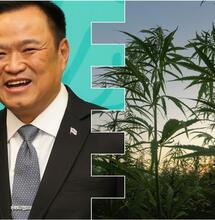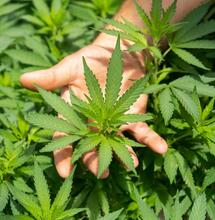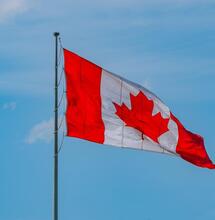Texas Governor Signs Bill Legalizing Medicinal Cannabis Oil for Seizures

Legislation legalizes CBD oil for epilepsy but not medi-weed or recreational pot
Legislation legalizes CBD oil for epilepsy but not medi-weed or recreational pot
On June 1, Governor Greg Abbot signed Senate Bill 339, which legalizes the use of cannabidiol oil in treating intractable epilepsy. Medical marijuana and recreational weed both remain illegal in Texas.
The Texas Compassionate Use Act, filed by Sen. Kevin Eltife (R-Tyler) and Rep. Stephanie Klick (R-TX), passed easily through both chambers. Some attribute the overwhelming support towards the bill to the testimony of parents who act as primary carers for their children with severe epilepsy. The legalization of CBD oil will directly affect those very people, as well as others in the same situation - although only patients with chronic and persistent seizures will be allowed access. For many severe seizure disorders, cannabidiol oil is the only treatment that helps.
Opponents lament the extremely limited access that the new bill brings and have expressed displeasure with the fact that smoking is prohibited. Although different ailments are treated with different strains and varying methods of application/consumption, it is likely that patients will only have access to Cannabis oils and concentrates, rather than herbal products, medibles, etc. Other legislation that would have offered a more comprehensive approach to medicinal marijuana was bypassed or ignored by legislators in favor of SB 339.
Gov. Abbot defended the bill's passage in a statement, saying, "There is currently no cure for intractable epilepsy and many patients have had little to no success with currently approved drugs." He added, "However, we have seen promising results from CBD oil testing and with the passage of this legislation, there is now hope for thousands of families who deal with the effects of intractable epilepsy every day."
The new law takes effect immediately and concerns 'low-THC marijuana', limiting the content to a maximum level of 0.5 percent THC by weight. The oil must contain ten percent CBD or higher. THC is psychoactive but CBD is not, thus the intoxicating effect of cannabidiol oil is not an issue.
What could prove to be the largest issue relating to SB 339, however, is the fact that unlike in other states, where medical Cannabis is allocated to patients via certifications and recommendations, the new Texas law would require actual pot prescriptions from doctors. The problem with that approach is that weed remains illegal under federal law, which could discourage doctors or even cause legal trouble for them.
Opponents have voiced concern about giving drugs to children; however, supporters note the prevalence of minors, including very young children, who are heavily medicated in the United States - many of whom do not suffer from ailments anywhere near as life-threatening as seizure disorders such as Severe Myoclonic Epilepsy of Infancy (SMEI, commonly Dravet syndrome).



